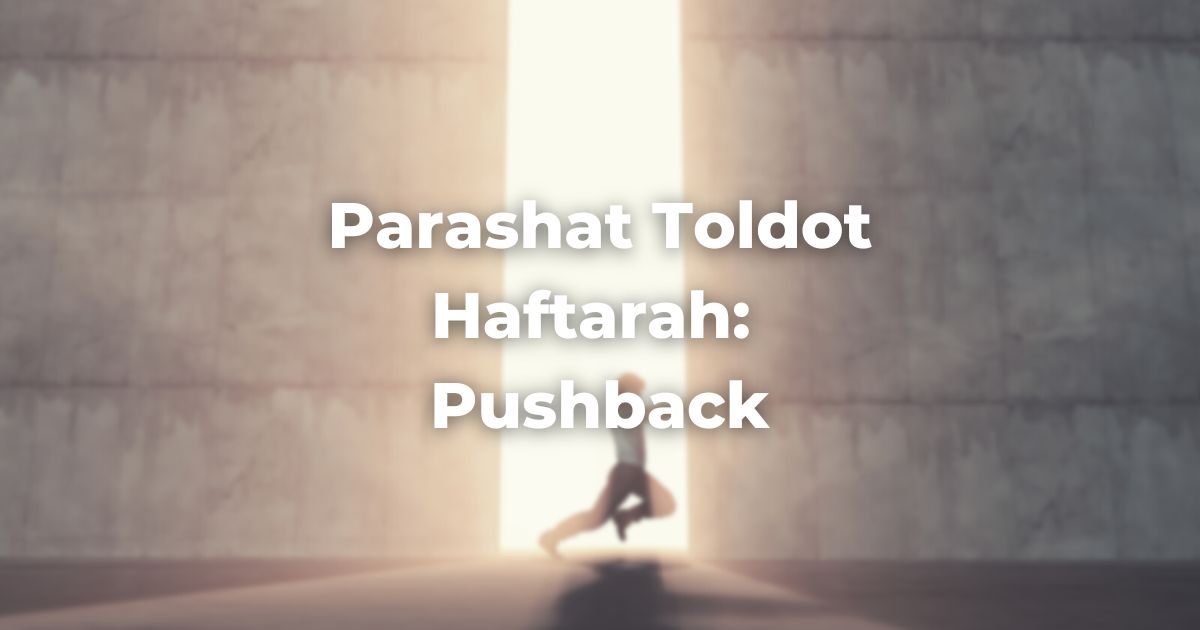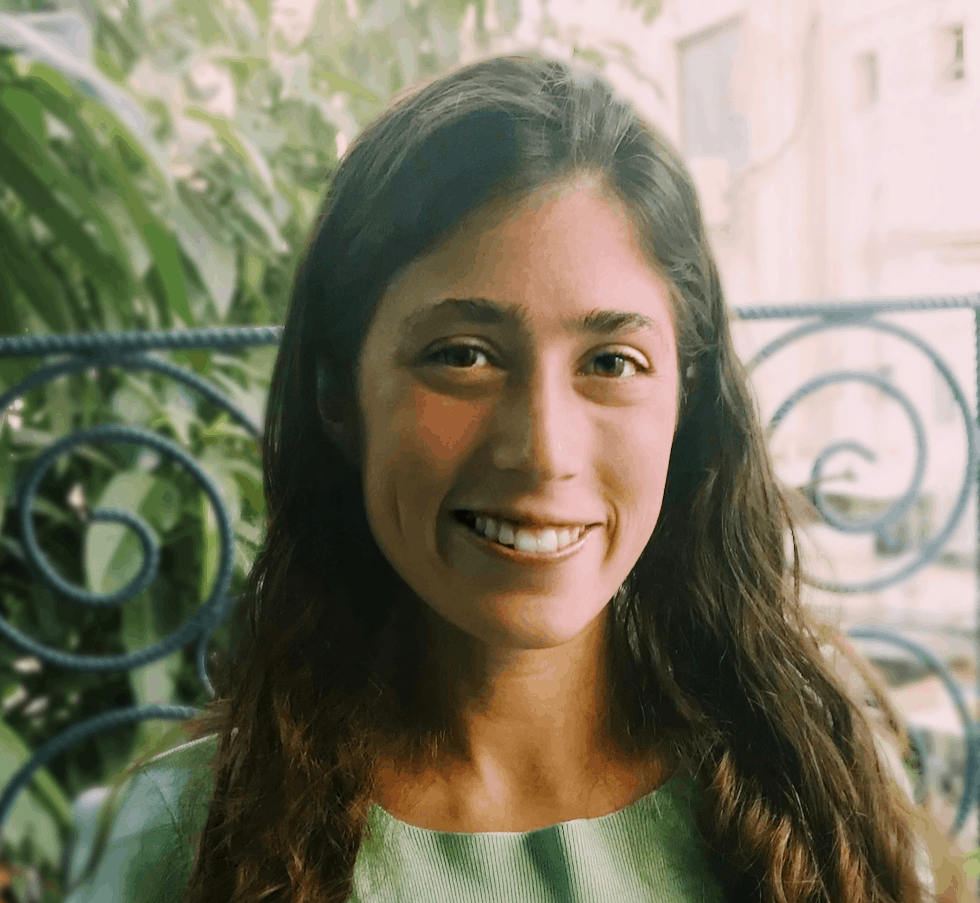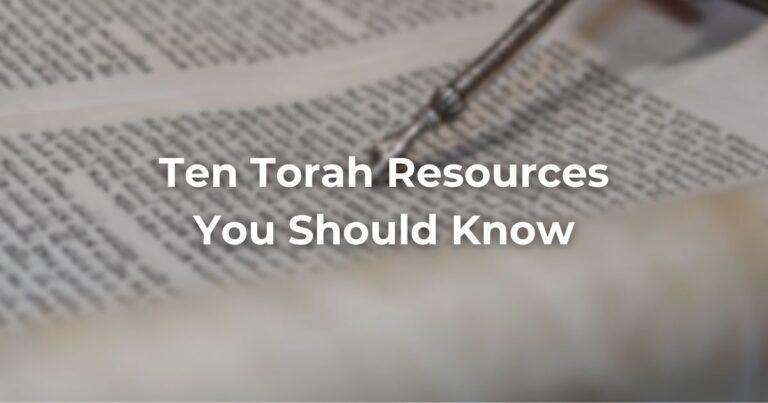Who speaks to God?
In our parashah, Isaac and Rebecca both appear to have a relationship with God. Much of the plot is dominated by the question of who has a right to have a relationship with God in the next generation.
The special relationship, the blessing, can only pass to one of the two children. Jacob wins and Esau cries.
As that blessing gets passed down through the children of Jacob, the Israelites, the question of who speaks to God and to whom God responds becomes more complicated. Some kings, priests, and the prophets pick up the mantle, so to speak. As leaders of Israel, they are the ones who are to communicate God’s messages with the rest of Israel.
We do also find some occasions in which it seems as if God is communicating with all of Israel directly.
In our haftarah, Malachi 1:1-2:7, communication with God is front and central.
The majority of the passage is presented as conversation between God and the priests and then God and the people. God speaks, the people question, and God responds. We read in Malachi 1:2-3, as translated by Robert Alter: “I have loved you, said the LORD, and you said, “How have you loved us?” “Is not Esau Jacob’s brother?” said the LORD. “And I loved Jacob, but Esau I hated, and I made his mountains a desolation and his estate—for the desert jackals.”
This dialogue is shocking.
We find ourselves discussing, even questioning, love with God. God declares God’s love for us. And we choose to respond by asking for clarification, perhaps even proof.
The text does not identify who the “you” is at this point with any more specificity than talking about Israel as a whole. The entire nation is implicated at this point, speaking with one voice, responding to God’s declaration of love for us with the sort of impertinence that tends to get us into trouble.
As our conversation continues, we do in fact get scolded. God remonstrates us for failing to give God proper honor and reverence. We respond with questioning once again, asking “how have we despised you?” And so the dialogue continues, with Israel pushing back again and again.
Unlike most of the prophetic books, the book of Malachi tells us nothing about when it was written or who the prophet Malachi is.
The word “malachi” can also be translated simply as “my messenger” or “my angel” rather than as a proper name at all. He is identified in the TalmudReferring to one of two collections, the Jerusalem and Babylonian Talmuds, edited in the 6th century, that contains hundreds of years of commentary, discussion, and exploration of the ideas in the Mishnah. One could describe it as Mishnah + Gemara = Talmud Read more, Megillah 15a, with both Mordechai, from the Esther story, and Ezra, the priest who returned the reading of the TorahRefers to the first five books of the Hebrew Bible, the Tanakh, also called the Five Books of Moses, Pentateuch or the Hebrew equivalent, Humash. This is also called the Written Torah. The term may also refer to teachings that expound on Jewish tradition. Read more to the Second Temple. The text of the book also contains some Persian words.
So when we read this questioning, this pushback on behalf of the people, we can read it as happening fairly late in our history recorded by the TanakhAn acronym for the name of the Hebrew Bible: Torah, Neviim, and Ketuvim. Read more.
We are a people who have been to exile, come back, and failed to thrive.
God claims that God loves us, that what we have been given is enough, and we cannot accept it. Having returned to the land of Israel is not enough for us. Having God, Godself, proclaim love for us is not enough.
We ask for more. And we do not get it.
Tradition holds that prophecy departs from Israel after Malachi. We find ourselves questioning God and receiving no replies. The special relationship becomes a historical relationship, a textual relationship. And we begin to answer our questions ourselves.
See more: Parashat Toldot
Originally posted as part of the Conservative Yeshiva at the Fuchsberg Jerusalem Center’s Torah Sparks. Support Torah learning from the Fuchsberg Jerusalem Center/Conservative Yeshiva for leaders and seekers around the world here.
Authors
-

Bex Stern Rosenblatt is the Conservative Yeshiva’s Faculty-in-Residence for the Mid-Atlantic Region of the United States, teaching Tanach, using the techniques of close-reading, theater, feminist readings, and traditional commentators. Bex also directs the CY’s recruitment efforts in North America. After finishing her B.A. in History and German at Williams College, Bex received a Fulbright Grant to Austria. She later earned an M.A. in Tanakh from Bar Ilan University and has also studied at the Conservative Yeshiva and Bina Jerusalem. Bex is the founder of HavrutaA study partner. A hevruta is more than just a ‘study buddy’ it is a serious and personal relationship between colleagues. Also spelled: Havruta Read more Tel Aviv, an organization that facilitates guided pair-learning of the Tanakh.
View all posts -



The Fuchsberg Jerusalem Center (FJC) is a home in the heart of Jerusalem where leaders and seekers can find an authentic place in Jewish tradition to call their own. FJC offers opportunities to study, pray and explore within an egalitarian and inclusive setting, creating multiple pathways for finding personal and communal meaning.
View all posts






